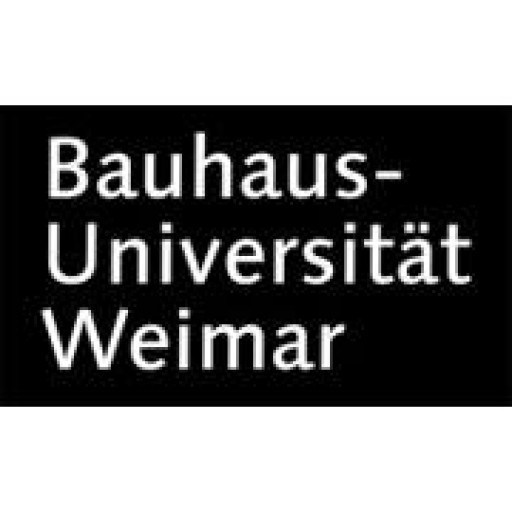Photos of university / #unifreiburg
Students can choose between two English-taught elective tracks:
- Biomaterials and Bioenergy
- Wildlife, Vegetation, and Biodiversity
The elective track "Biomaterials and Bioenergy" responds to the growing need for graduates and actors in the emerging bioeconomy. The specialisation focuses on the valorisation of natural materials for the development of bio-based products, i.e. bioenergy, chemicals, and biomaterials. Lignocellulosic biomass (e.g. wood) and other biopolymers (e.g. bacterially produced bioplastics) and their composites are a major focus of this specialisation. Students will learn about the biology, chemistry, materials science and processing technologies for the processing of natural materials into bio-based products within the context of biorefineries. Basic knowledge in chemistry is a prerequisite for this specialisation.
The elective track "Wildlife, Vegetation and Biodiversity" covers the ecology and conservation biology of animals and plants. Anthropogenic loss, fragmentation and deterioration of habitats are the major causes of species extinctions. Direct human exploitation and invasive exotic species add to the current loss of biodiversity, and climate change is posing a new, accelerating threat. Biodiversity conservation is on the political agenda worldwide; conservation biologists provide the scientific basis for this global endeavour. The elective track will focus on forest ecosystems. Forests are the main retreats for many threatened animals and plants; this holds around the globe, from the boreal forests of the North to the rainforests of the Tropics. Therefore, biodiversity conservation is strongly linked to forestry - and no forest manager can avoid biodiversity issues. WVB's focus is on ecological research in an applied conservation context. Module contents range from theory and research methods to field work. The first semester provides a conceptual basis, introducing the concept of biodiversity, methods in wildlife research, and conservation biology. In the following summer, after an introduction to population and community ecology, students will spend a lot of time in the field, practising vegetation studies and restoration ecology. In the third semester, students can further develop their individual profiles by choosing from various modules, project studies, and special topics.
Educational organisation
All teaching modules are divided into blocks of three weeks to facilitate in-depth coverage and exploration of the topics. The modules are classified as either core or elective. A module usually comprises lectures, practicals, tutorials, preparation, reading, independent learning and assessment.Students earn five ECTS credits upon successful completion of each module. In total, 120 credits are required. Included in this is an internship of at least seven weeks (10 ECTS) and a Master's thesis of six months (30 ECTS).
Students can choose between two English-taught elective tracks:
- Biomaterials and Bioenergy
- Wildlife, Vegetation and Biodiversity
Modules of the track Biomaterials and Bioenergy
First semester:
- Research Skills (core module)
- Global Environmental Changes (core module)
- Managing Human Environment Interactions (core module)
- Bioresources and their Conversion
- Biomaterials I
- Bioenergy I
- Spatial Information Systems (core module)
- Ecosystem Management (core module)
- Biomaterials II
- Biomaterials III
- Bioenergy II
Third semester: five elective modules
Fourth semester: Master's thesis
Modules of the track Wildlife, Vegetation and Biodiversity
First semester:
- Research Skills (core module)
- Global Environmental Changes (core module)
- Managing Human Environment Interactions (core module)
- Biodiversity
- Conservation Ecology
- Research in Wildlife Ecology
- Spatial Information Systems (core module)
- Ecosystem Management (core module)
- Population and Community Ecology
- Restoration Ecology
- Wildlife and Landscape Ecology
Third semester: five electives
Fourth semester: Master's thesis
Study abroad unit(s)
NoneInternships
A seven-week internship is an obligatory part of the programme (10 ECTS).Forms of assessment
Written exams at the end of each module and/or papers and oral presentationsStudents earn five ECTS credits upon successful completion of each module. In total, 120 credits are required. Included in this is an internship of at least seven weeks (10 ECTS) and a Master's thesis of six months (30 ECTS).
Course objectives
The study programme aims to generate:- a general understanding of the current global environmental situation as well as the causes of, and perspectives on, environmental problems
- an in-depth understanding of ecological and technical, but also political and economic processes which are crucial for the development of a future "green" world
- methodological knowledge and competence to analyse ecological changes at various levels and to develop counteractive measures
Graduates of this programme will be qualified to proceed with a scientific career, continuing with a PhD thesis and then working at universities or research institutes. They will be equally qualified for more practical employment in the "green" industry, in public environmental administrations and in NGOs, specifically at an international level.
Language requirements
English language skills: English language at level C1 according to the European Framework of Reference for LanguagesYou must prove your English proficiency by a language test certificate, e.g. TOEFL internet-based 100, IELTS 7 or equivalent.
Academic requirements
BSc degree or equivalent, above-average in environmental sciences, geosciences, hydrology, biology, forestry, agricultural sciences, nature conservation, landscape planning or a related fieldEnrolment fees
Approx. 150 EUR per semester (social and administrative fee)Costs of living
Participants must make sure in good time that sufficient funds are available to finance their participation in a course of study. The average cost of living in Freiburg for one month is currently approx. 800-900 EUR. Some details:- Student accommodation costs approx. 280-450 EUR (monthly).
- Private expenses amount to around 350 EUR (monthly).
- Health insurance is available for approx. 45-90 EUR (monthly).
- Transport: A special student fare for regional transport costs approx. 89 EUR (per semester).
Job opportunities
As a student, you are allowed to work up to 120 days per year and 85 hours per month. A limited number of positions as student research assistants or tutors are available in the department.Arrival support
Pre-departure information available on the programme's websitePick-up service on request
Buddy programme
Support in finding accommodation and with administrative procedures
Orientation days prior to the start of the programme (introduction into the programme, administrative issues, workshop on intercultural communication and German culture)







